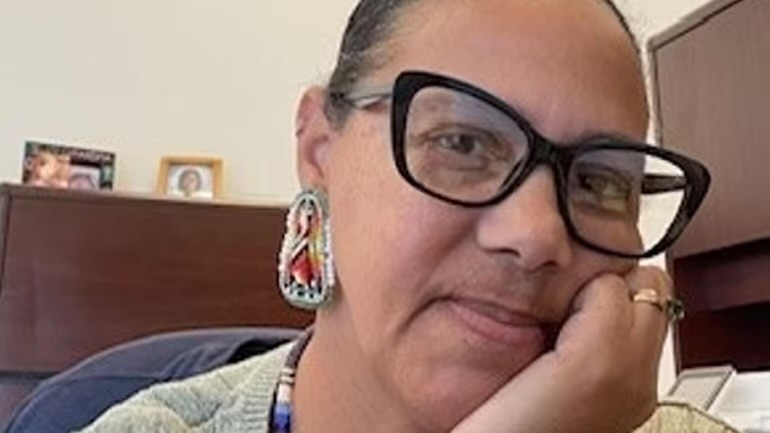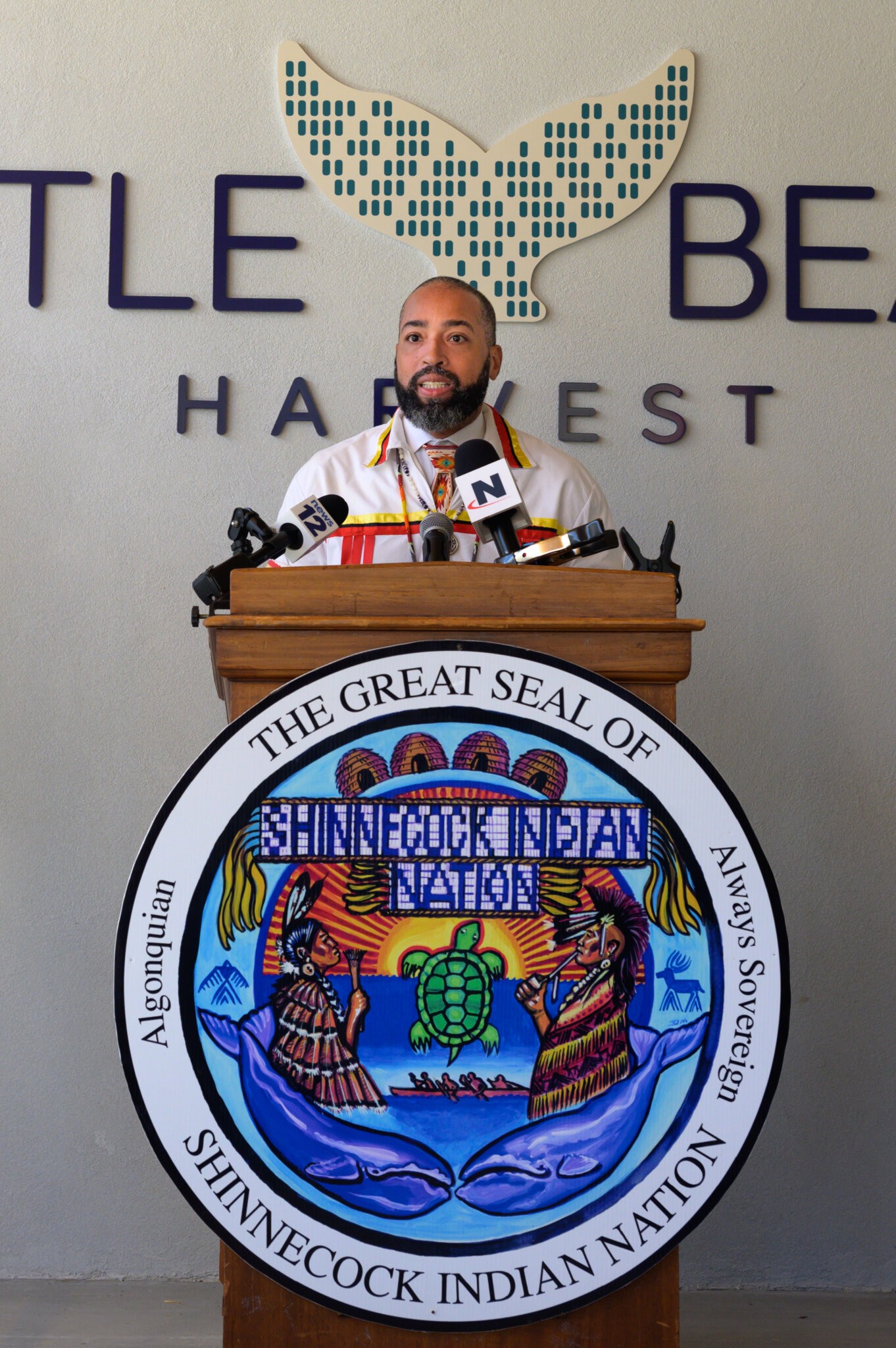Ceiling Shattered: Shinnecock Nation Elects Lisa Goree as First Female Chair

Lisa Goree shattered a glass ceiling April 3 when she became the first woman elected chair of the Shinnecock Nation tribal council since the panel was established more than two centuries ago.
Goree replaces Bryan Polite, who had served as tribal chairman for about a decade before stepping down last month with a year left on his current term. Her historic election comes as the Shinnecock are at a crossroads with several pivotal projects in the works that may dramatically change life on its Southampton territory.
“I am deeply honored and humbled that my tribe had the confidence in me,” Goree told Dan’s Papers before being sworn in on April 8. “It’s very significant for us because … up until 1994 … us women were not even allowed to have a vote.”
The Shinnecock became one of nearly 600 federally recognized tribes in the U.S. in 2010, when they became the only one on Long Island to gain federal recognition. The Unkechaug Nation that calls the Poospatuck Reservation in Mastic home won New York State recognition in 1777 — but members of the Montaukett tribe continue to fight for the same recognition to this day.

The Shinnecock Nation Council of Trustees was created in 1792 and originally only had three members until it was increased to seven members in modern times. Besides governing its territory and interacting with federal, state and local government agencies, it is also tasked with preserving Shinnecock lands, traditions and culture most publicly visible at its annual Shinnecock Powwow held each Labor Day weekend.
The election of a new Shinnecock leader comes after an unprecedented political sea change across the East End in which all incumbents declined to seek re-election last fall for all five town supervisors seats, the Suffolk County legislative seats for the Hamptons and the North Fork and the county executive’s seat. Women were also elected to both of those legislative seats as well as the supervisor seats in the towns of East Hampton, Southampton and Shelter Island.
Goree won the Shinnecock tribal chair seat with 133 votes, according to what she described as an unofficial tally, over opponents Randy King and Keith Arrindell Jr. Tribal elder Lance Gumbs, a former chair, was elected vice chair. Linda Franklin was elected sunksqua and Daniel Collins Sr. was named sachem, both of which are considered ceremonial titles.
Goree’s roots in the community run deep. She grew up on the tribal territory, where she has lived most of her life, and graduated from Riverhead High School. She and her husband of 37 years moved back to the territory in 1992 to raise their three daughters. The couple now has six grandchildren.
She is uniquely qualified to handle the tribal council’s interactions with other local government entities. Goree has served since 2013as the Sole Tax Assessor for the Town of Southampton, an appointed position in which she is responsible for ensuring the fair and accurate property tax assessment of more than 51,000 parcels across dozens of special districts, including 21 fire districts, 13 school districts, nine ambulance districts and seven villages. She has worked for the town for 23 years and is also a member of the New York State Assessors association’s 11-member board.
“My priorities coming into the position is to make sure that the needs of our elders are taken care of and also to continue to build relationships with other outside agencies and maintain the welfare of our young generation,” she said.
Goree said she is still getting briefed on the current status of the tribe’s many ongoing economic development initiatives that have drawn headlines beyond the Hamptons.
“The bigger projects right now I’m really not able to speak on, being that I’ve just been in office six days,” she said.
The most recent tribal project to be completed was the Little Beach Harvest recreational marijuana dispensary. The Shinnecock also recently cleared land as part of the construction of a gas station planned in Hampton Bays. It is also planning to build a hotel and convention center. And biggest of all are the tribe’s renewed efforts to open a Las Vegas-style casino, something it has been trying to do for more than a decade. But the status of that project remains unclear, as state leaders have reportedly delayed until next year the awarding of long-awaited downstate casino contracts.
The Shinnecock are also still in litigation with the state Department of Transportation over the construction of two electronic advertising monuments on tribal land abutting both sides of Route 27, easily its most visible initiative in recent years at the gateway to the Hamptons. One of the most significant victories of Polite’s tenure was helping ensure the sacred burial ground known as Sugar Loaf Hill was purchased from a private owner and converted to a preserve to prevent development that would desecrate ancient unmarked graves, which is not uncommon on the East End.
Polite could not be reached for comment, but has been quoted as saying he stepped down for personal reasons.
“Public service in general is very exhausting and there comes a time when everybody needs to take a break sometimes just for their own well-being,” Polite told WSHU. “I’ll still continue to assist with the multiple projects and be a fierce advocate for Shinnecock causes.”









